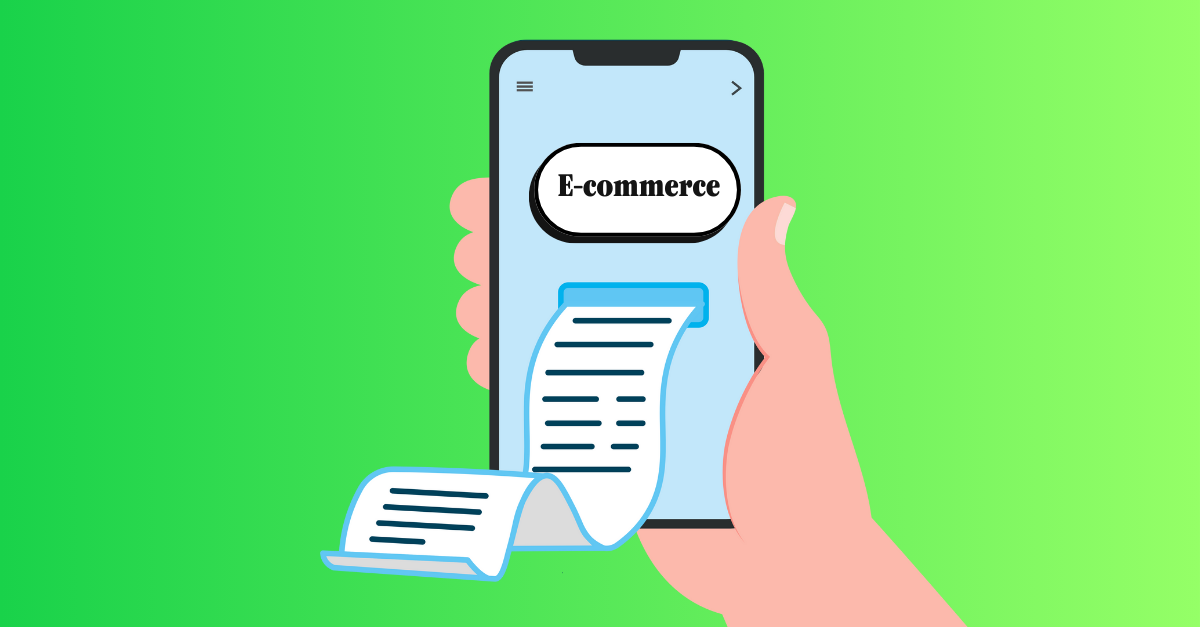Effective supplier management is an important factor to keep your business running smoothly. Without supplies, you have no products. Without suppliers, you have no supplies. That’s obvious.
But a solid, optimised relationship with a supplier can also help to boost your operational efficiency and optimise your cash flow management. In this way, suppliers play a crucial role in your organisation's profitability.
In this article, we take a look at the benefits of optimising supplier relationships, and the negative consequences that a poor relationship with a supplier can have on your business.
We also share four practical tips to improve your supplier relations strategy and hopefully boost overall competitiveness.
What is supplier relationship management (SRM)?
Supplier relationship management is the strategy and set of tactics you use to get the most value from your suppliers while also keeping them happy. This includes your regular payments and transactions, receiving and returning goods, and other day-to-day interactions.
It also includes fostering real partnerships with key suppliers. Bath parties are crucial in the other’s success, and each relationship has a direct impact on the quality of your products and services. It has a domino effect throughout the company's value chain: customer satisfaction, brand image and, ultimately, profitability.
It is therefore important for your company to establish transparent and productive relationships with these strategic partners. This involves a number of actions on your part - starting with clear two-way communication about your needs and work processes.
Supply chain management is central to the smooth running of your business, and in particular to your procurement processes. By strengthening your relationship with suppliers, you can reduce your costs (and therefore increase your return on investment).
You also develop a competitive advantage by offering your customers higher quality products and services. So being able to work with and rely on vendors is critical.
5 key benefits of SRM
Good suppliers are always in high demand. And just as it’s more profitable to retain existing customers than to convert new ones, finding and onboarding new suppliers is an added cost it’s best to avoid. So strong vendor relationships are valuable.
Above all, this requires scrupulous compliance with contractual terms and conditions. If you fail to meet your obligations, the relationship can deteriorate fast. In practical terms, this means price rises, requests for payment in advance, or the supplier ending the arrangement.
There are plenty more good reasons why healthy supplier relations are beneficial for your business. But if you had to choose just five, here they are.
1. Build a strong reputation
If you behave badly with your suppliers — for example, if you have a habit of paying them late — this can become public. Suppliers may talk. As well as the risk of losing your current suppliers, it will also be more difficult to find new ones.
You also run the risk of public naming and shaming on review sites. Most companies worry about customers leaving a poor review, but there’s nothing stopping suppliers doing the same. And in some countries, collections agencies have begun publicly sharing the names of businesses that don’t pay. (Rubypayeur in France has its own “wall of shame”.)
2. Improve your products and retain clients
Good relations with suppliers help you ensure and improve the quality of the products and services you market. If they like you and trust you, your supplier may well give you privileged access to the best raw materials.
In retail, food and beverage, and other consumer goods, quality of stock is one of the true differentiators from your competition. Most importantly, you want an offering so good that the same clients return time and time again.
Strong long-term relationships help ensure that your inventory is top notch. And happy clients will always come back for more.
3. Save on procurement costs
A mutually beneficial relationship with vendors can bring many benefits. Most appealing of which (for you) is the potential for cost savings.
Regular renegotiations should be part of your supplier strategy. And a track record as a reliable customer puts you in a great position to argue for better terms — either more flexibility or actually lower prices.
In a less obvious sense, smooth relationships also make you more efficient, which can mean savings internally. The less time you take on back and forth with a tricky supply base, the better you’re using your own resources. In the long term, you can streamline your supply processes, reduce the risk of overstocking, and therefore optimise your cash flow management.
This is a particularly important issue in certain business sectors. For example, agencies often need to pay their freelancers or event organisers within a timeframe that is shorter than that of their customers, with a difference of up to one or two months. Which puts constant pressure on cash flow.
Finally, as we’ll see shortly, some supplier terms include early repayment discounts. The stronger the relationship in place, the more likely you are to receive this form of benefit.
4. Maintain a reliable supply chain and mitigate risk
Good supplier management helps you improve the reliability of your supply chain. Supplier risk is often overlooked, but potentially very costly. Even a day or two’s delay can set you far behind your business objectives for a month or quarter.
Not all delays are the supplier’s fault, of course. A drought in the Panama canal in 2023 caused a 21-day wait for ships just to get through, which upset global supply chains (and particularly the United States).
That’s an extreme example, and blaming someone (or the weather) isn’t actually the point. Your ability to contact and work with suppliers in difficult moments helps to keep you at the top of their priority list.
They’re more likely to go the extra mile to deliver for someone they like and trust. And you’re more likely to avoid issues in future.
5. Strengthen your capacity for innovation through good supplier relations
Your suppliers can also be a valuable source of ideas and innovative solutions. Cultivating solid relationships with them will enable you to make better use of their expertise to innovate in your vertical.
Of course you want to have early access to their latest improvements. Just like Apple, Samsung, and Nokia are all competing for the best chips, you want the very best (and newest) supplier capabilities available.
In this way, a strong supplier relationship management process is also a core business strategy. A rising tide lifts all boats — both yours and your providers’.
4 strategies to optimise supplier relationships
What levers can you use to optimise your supplier management and turn it into a long-term growth driver? Here are four essential steps in strategic supplier relationship.
1. Maintain transparent communication
One of the key elements of a good relationship with your suppliers is transparent and regular communication. This not only helps you avoid misunderstandings and delays, but also order errors.
By communicating clearly with your suppliers, you can better share your needs and requirements, and ensure that your objectives are met. You’ll soon understand each other inherently, and the level of actual communication required comes way down.
Our advice: set up simple, direct channels of communication. Designate a main point of contact within your teams to ensure that you are on the same wavelength as your supplier.
And set clear expectations from the beginning. Make sure that each understands the other’s business needs and what success looks like in the long term.
2. Know and honour your contractual commitments
Contractual commitments are legally binding agreements between two parties. Failure to respect these can lead to disputes with your partners, delays in delivery, and additional costs.
But above all, you run the risk of losing the confidence of your suppliers - which can lead to an abrupt end to your commercial relations.
In truth, meeting your commitments shouldn’t be too difficult. Where most businesses struggle is when the process isn’t clearly defined. You can’t hope to stay on top of everything without a system in place.
Our advice: maintain a clear SRM process. Supplier relationship management software is obviously built for this purpose, but not always essentially. More important is to assign roles to stakeholders and make a regular habit of checking supplier data and keeping a clear payment calendar.
3. Avoid late payments & benefit from discounts
Late payment is one of the most common problems in supplier relationship management. The consequences can be damaging for both parties. Late payment can cause delivery delays and a deterioration in your collaboration, and can lead to cash flow problems for your partner.
On the other hand, some suppliers reward early payment with discounts. If you have the cash flow available to take advantage of this, these discounts are an excellent way of deploying your working capital effectively.
Our advice: define a clear payment policy and respect the agreed payment terms. You can consider alternative solutions to improve your cash flow and avoid delays. If possible, pay in advance to show your goodwill, and build up trust with the supplier in the event of future difficulties.
4. Involve suppliers in strategic planning
Involving suppliers in your purchasing strategy can have a significant impact on the quality of your relationship. You can benefit from their knowledge and expertise to improve the quality of your products and thus boost your company's growth.
Involving your suppliers over the long term can also improve their flexibility and responsiveness — if they like you, it can have a positive impact on your procurement strategy and costs.
Our advice: meet and hold planning sessions once or twice a year to discuss your objectives and your purchasing strategy. You can also ask your suppliers to suggest improvements or ways of reducing your costs.
Effective supply management requires a working capital plan
Hopefully it’s clear that supplier relationships are best viewed as a two-way street. A happy supplier base leads to fewer disruptions, exciting new initiatives, and cost reductions.
If you have serious business needs, a supplier performance plan (with metrics and KPIs, and cash forecasting to match) can really pay off. But for most companies, the key is simply consistent communication and to deliver what you say you will.
None of which is possible if you can’t pay on time. Even better if these payments put your working capital to optimal use.
Defacto offers you real-time, short-term financing to pay supplier invoices. Simply upload an invoice, and we'll provide you with the necessary funds. Never pay late, and don’t dip into your long-term funding sources.
See if you qualify today - it only takes 27 seconds.




